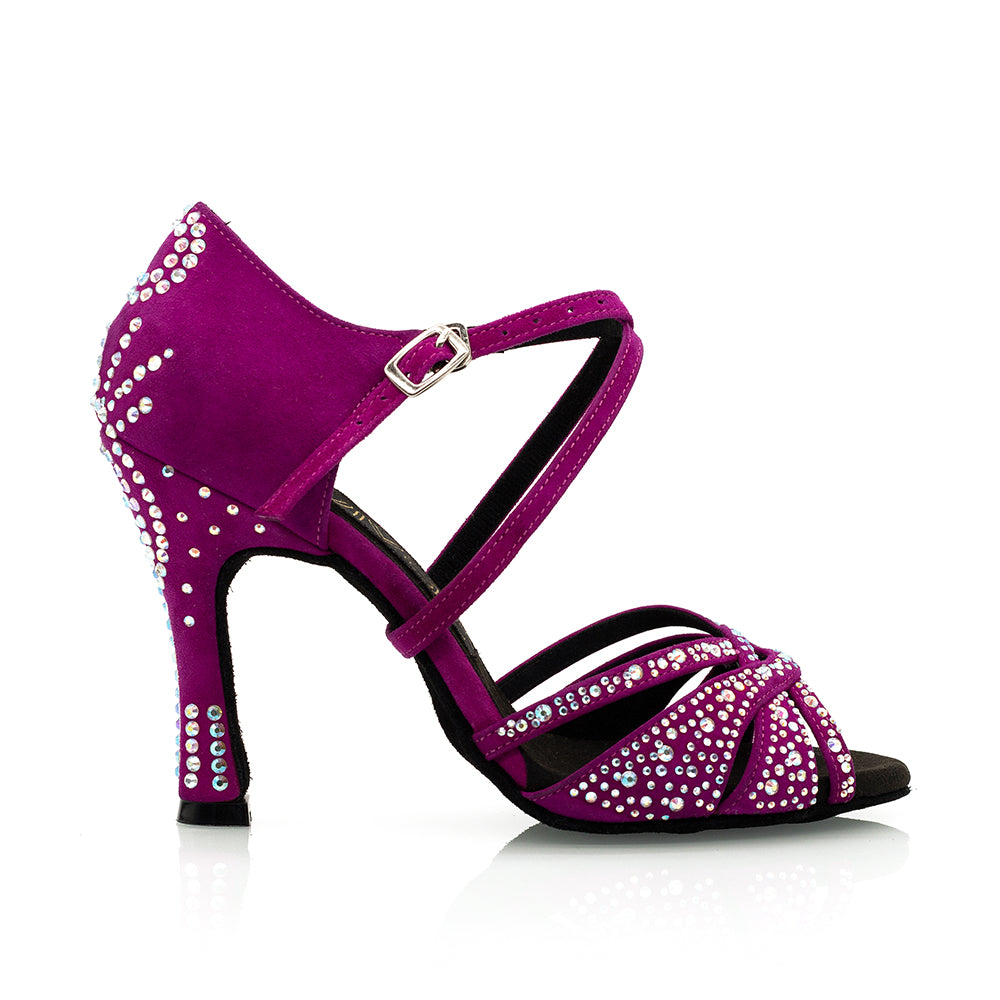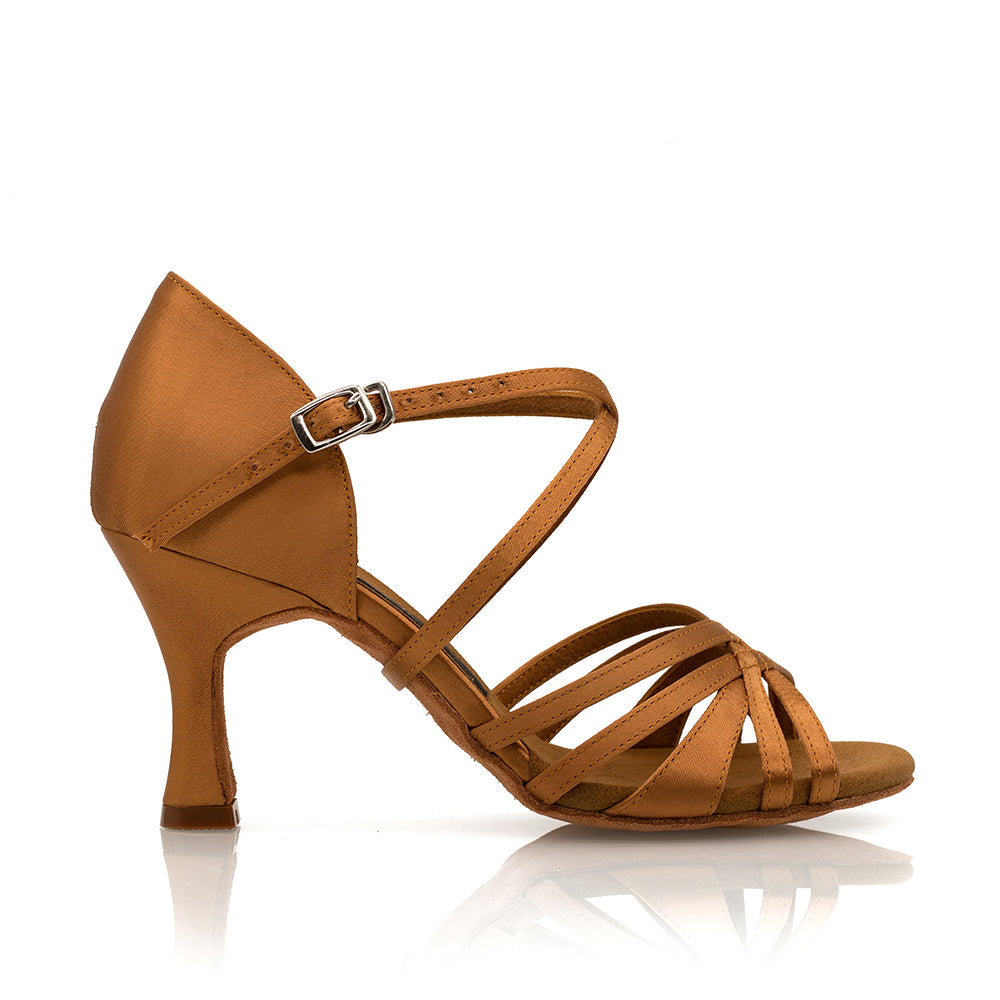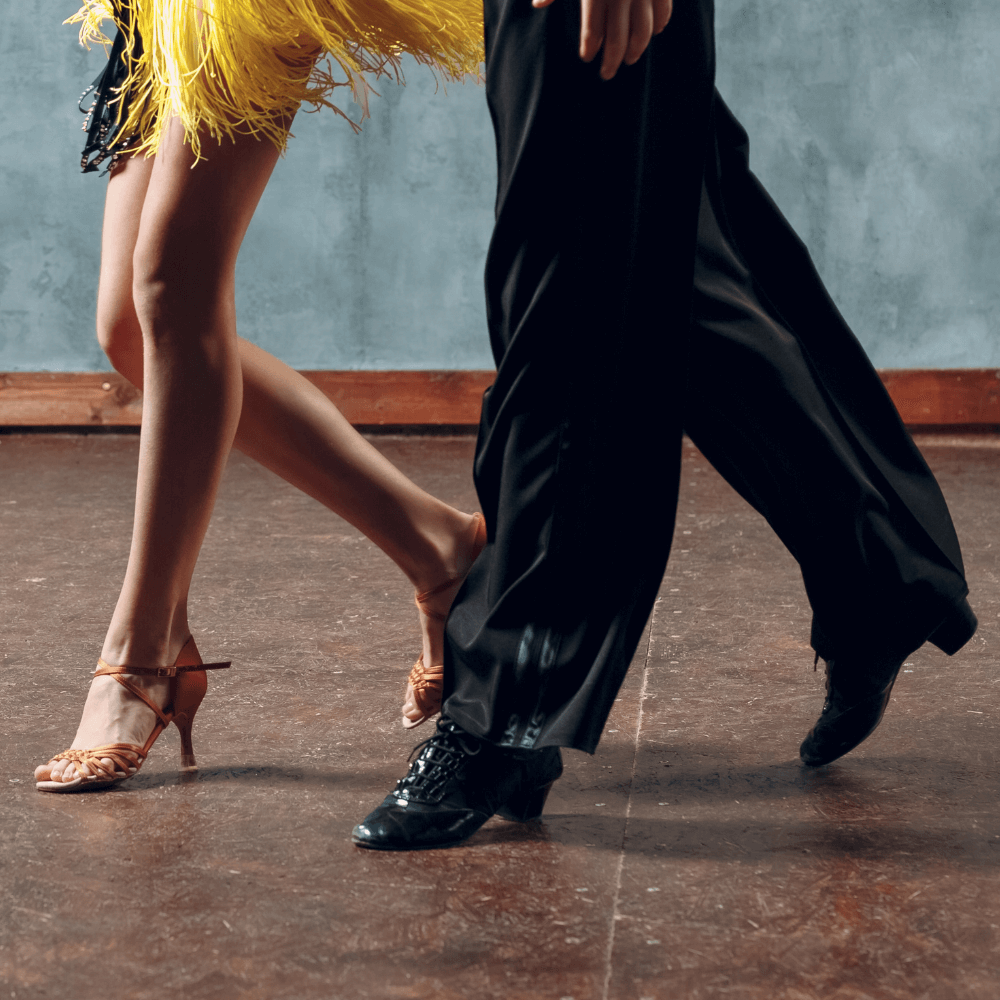The Importance of Proper Salsa Dance Shoes
Choosing the right salsa dance shoes is vital for any dancer. These shoes affect your performance on the dance floor. They provide the necessary support and flexibility. This helps you make the precise movements salsa dancing requires.

Good salsa dance shoes reduce the risk of injuries. They do this by cushioning your feet and preventing slips. They also help improve your balance and posture. With the right shoes, you can dance for longer periods without discomfort.
Moreover, proper salsa shoes can boost your confidence. Knowing that you have the right footwear, you will feel more secure. You can then focus on the rhythm and your dance partner, rather than worrying about your feet.
In summary, the right salsa dance shoes are crucial. They enhance performance, prevent injuries, and boost your confidence on the dance floor. Make sure to choose a pair that offers both style and function.
Key Features of Salsa Dance Shoes
When looking for the ultimate pair of salsa dance shoes, several key features stand out. These features directly impact your performance and comfort. Understanding them helps you make an informed choice.
Flexibility and Support
Flexibility in salsa dance shoes is essential. It allows your feet to move with ease. Look for shoes that flex with your foot’s natural movement. This enables quick steps and turns without strain. Yet, they must also provide support. A good pair will have a reinforced arch. This helps maintain your foot’s shape during complex moves.
Sole Type and Material
The sole affects your grip on the dance floor. Salsa dance shoes mostly come with suede soles. Suede offers a balance between slip and grip, which is perfect for swift salsa movements. Some choose leather for more slip, or rubber for more grip. Choose material based on the dance floor you frequent.
Heel Height and Shape
Heel height can change your dance posture. A general rule is women opt for 2 to 3 inches, men for 1 to 1.5 inches. Shape matters too. Flared heels offer stability, while slimmer ones add aesthetic appeal. Your choice should reflect both your comfort level and dance style preferences.
Selecting the right salsa dance shoes requires careful consideration. Focus on flexibility and support, sole type and material, and heel height and shape for the best experience.
How to Choose the Perfect Size and Fit
Choosing the right size and fit for your salsa dance shoes is as important as the other features. The perfect fit ensures that your shoes work with you, not against you, on the dance floor. It prevents blisters, discomfort, and even potential accidents. In salsa dancing, where precision is key, a well-fitting shoe can make all the difference.
Understanding Salsa Shoe Sizing
Salsa dance shoes typically follow standard sizing but paying close attention to each brand’s specific chart is wise. Most manufacturers will provide detailed sizing guides. Measure your foot accurately and refer to the salsa shoe sizing charts provided. Remember, dance shoes should be snug but not painfully tight. They will stretch slightly with use, so factor this in when choosing your size.
Fit and Comfort Considerations
When trying on salsa dance shoes, pay attention to several areas for comfort. Ensure there is a small space at the toe box so your toes can move. Your heel should fit securely without slipping. The midsection of the shoe should comfortably hug your arch. Walk around in them, practice a few dance moves, and see if the shoes stay in place. Straps or laces should secure the shoe without cutting into your skin. Seeking out padded insoles can add extra comfort for long dance sessions.
Finding the perfect size and fit for your salsa dance shoes is foundational to your dancing experience. Always prioritize comfort and support, and consider fit adjustments for optimal performance on the dance floor.
Men’s vs. Women’s Salsa Shoes
When choosing salsa dance shoes, it’s essential to understand the differences between men’s and women’s styles. While the overall features are similar, such as the need for support, flexibility, and comfort, there are distinct variations that cater to each gender’s anatomical structure and dance role requirements.

Design Differences
Men’s salsa dance shoes typically have a lower heel height, usually ranging from 1 to 1.5 inches. The style is often minimalistic and focuses on function over form. Men’s shoes provide stability needed for leading movements in salsa dancing.
Women’s salsa shoes, on the other hand, often feature higher heels, between 2 and 3 inches, to enhance the dancer’s posture and leg lines. They come in various styles, including open-toe, strappy, and colorful options. This allows for greater aesthetic appeal and a vast range of choices to match dance outfits.
Fitting Needs
The fit for men’s salsa shoes should be snug at the midsection and provide enough room for the toes, ensuring stability during intricate footwork. For women, it’s vital that the shoe wraps comfortably around the foot, with a secure strap system that keeps the foot in place for spins and rapid steps.
By understanding these differences, dancers can select the appropriate salsa dance shoes that not only fit well but also complement their dancing style. Whether you’re leading or following, the right shoes make a significant impact on your performance and enjoyment of the dance.
Popular Brands and Styles
When searching for the best salsa dance shoes, popular brands and styles are important to consider. Known brands often provide a range of options that cater to individual preferences and requirements. Let’s explore some noteworthy names and their unique offerings in the world of salsa footwear.
Noteworthy Brands in Salsa Footwear
Several brands specialize in high-quality salsa dance shoes, prominent for their design and durability. Brands like Capezio, Bloch, and Supadance are well-known among salsa dancers. They offer a variety of styles, such as open-toe, closed-toe, and T-strap options, that have won favor with both amateur and professional dancers. These brands are recognized for their attention to the specific needs of salsa dancing; providing the right mix of flexibility, support, and style.
Styles That Shine on the Dance Floor
The style of your salsa dance shoes can express your personality. Glittery options, vibrant colors, and unique patterns are popular among dancers who want to stand out. For those who prefer a more classic look, there are also many elegant and understated styles available. Styles with a quick-release buckle, adjustable straps, and cushioned insoles are particularly sought after for their combination of convenience, security, and comfort.
Choosing the right brand and style is not just about aesthetics; it’s about finding salsa dance shoes that fit well, support your feet, and enhance your movements. Each dancer’s choice will be influenced by their individual style, the level of comfort they desire, and the type of salsa they perform. With the plethora of options available, dancers can find the perfect shoes to complement their skills and allow them to dance with confidence and flair.
Caring for Your Salsa Dance Shoes
To keep your salsa dance shoes in top condition, proper care is necessary. It extends their life and ensures they perform well each time you hit the dance floor.
Regular Cleaning
Keep your shoes clean. Wipe off any dirt or sweat after each use. For suede soles, use a brush designed especially for suede to maintain the texture that provides the perfect grip and slide balance you need for salsa.
Proper Storage
Store your salsa dance shoes in a breathable bag or container to allow air circulation. Avoid plastic bags which can trap moisture leading to odor and potential damage. Shoe trees can be helpful to maintain their shape.
Moisture Management
If your shoes get wet, let them dry naturally. Do not place them near heat sources like radiators as this may warp the material and ruin the fit.
Sole Care
Attend to the soles periodically. Suede soles may need regular brushing to keep them in prime condition, while you should check other materials for wear and tear.
Rotation Use
If possible, rotate between two or more pairs of salsa dance shoes. This prevents excessive wear on one pair and lets them air out, reducing odor and breakdown.
Avoid Rough Surfaces
Wear your salsa dance shoes only on dance-appropriate floors. Rough surfaces can scrape the soles and diminish their lifespan.
By taking these steps, you ensure your salsa dance shoes stay comfortable, look great, and are always ready for your next dance.

Where to Buy Salsa Dance Shoes
Finding the right place to buy salsa dance shoes is crucial. You want quality, variety, and professional guidance. Here are some tips on where to look.
Dance Specialty Stores
Visit local dance specialty stores. They offer expert advice and let you try on different styles. Most have a wide range of salsa shoes. You can feel the fit and see the shoes in person before buying.
Online Dancewear Retailers
Consider online dancewear retailers. They often have larger selections and good deals. Check their return policies in case the fit isn’t right. Look for customer reviews for insight on fit and quality.
Salsa Events and Workshops
Check out salsa events and workshops. Vendors sometimes sell shoes there. You can ask other dancers for recommendations and see what’s popular.
Direct from Brands
Buy directly from trusted brands. Their websites offer the latest styles and information. Ensure they have a clear size guide and good customer support.
General Sporting Goods Stores
General sporting goods stores are an option. They may not have a large variety, but you might find something suitable. It’s best for those new to salsa or in need of shoes quickly.
Choose a reputable source for your shoes. Consider service, selection, and return policies. Remember, the right shoes can enhance your salsa experience.